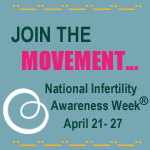Well, I’m sure several of you are out there gasping, frowning and nodding along as they make their way through this month’s book club pick The Conflict: How Modern Motherhood Undermines the Status of Women. I’m also sure that those of you reading have a lot of things to say about Ms Badinter’s take on modern motherhood and thus, I present to you a list of discussion questions for you to consider as you write your final blog posts (due next Tuesday please ladies). Thank you so much to those who sent something in.
The Conflict discussion questions:
- Would you call yourself a feminist (either publicly or as you think about yourself), and do you think that choice influences how you read this book?
- What was your motivation for having a child? Badinter seems to think that most women do not really articulate their reasons, and those who do think it through often decide it is too onerous to have a child, at least in many societies. Did your experience of infertility force you to evaluate your motivations and expectations for motherhood? Do you think this influenced your experience of motherhood?
- Badinter condemns the movement towards breastfeeding as forcing women to make themselves available to their babies constantly. How have you experienced breastfeeding (or not breastfeeding)? Are you someone who is happy to be at her child’s beck and call, or have you found ways to be an individual and a mother? How have societal expectations influenced your decisions?
- There are several points in the book in which Badinter categorizes women (or cites other authors’ categories). Do you feel you can be typed? Have your ideas of what you find fulfilling changed since you had your first child?
- Do you consider yourself a “naturalist” when it comes to motherhood and child-rearing, and if so did you feel hurt/offended by this book? Did it make you question your decision to be a naturalist parent or stir up feelings of regret? Do you feel the author made some good points, topics for discussion, or did you just want to hurl her book against a hard brick wall?
- Do you feel the author is right to assume that there is always a struggle or negotiation for women between their role and desires as women and their role and desires as mothers?
- If you left the workforce to be home with your kids, temporarily or permanently, did you find the need to continually rationalize your decision to yourself and others? Do you/did you feel pressure to return to the workplace or vise versa and have you ever felt threatened or made vulnerable by a dependence on your spouse for income?
- Did you find yourself agreeing with Badinter’s assessment that if you fail to be a natural parent who eschews drugs during birth, breastfeeds, cloth diapers etc. society deems you an unfit mother?
- Badinter makes a poignant point regarding women who experience infertility and are childless, stating that “those who can’t have children are expected to put up with it nobly.” As someone who has experienced loss and infertility, how did that statement make you feel?
- Badinter talks a lot about family-friendly policies around the world, sometimes intended to shrink the equality gap between mothers and fathers–she uses Sweden as one of the most progressive examples. Do you think it’s possible for any government policy to bring equality to the sexes? Or does the role that mothers play trump any attempt to level the field?
- Does it matter you, as a mother, that your choice to breastfeed, stay home etc. might undermine your status as a woman? Do you feel it’s your duty to help further the status of women by not giving into the pressures of modern motherhood?
Of course, you’re welcome to answer any of your own questions as well, but hopefully this will help you get started. Once you’ve written your blog post, please email the link to prairieplates@gmail.com no later than 6pm CST on Tuesday August, 14.






[…] Badinter’s book The Conflict: How Modern Motherhood Undermines the Status of Women for the PAIL bookclub, I thought it would be a fascinating look into what seemed like a controversial point-of-view on […]